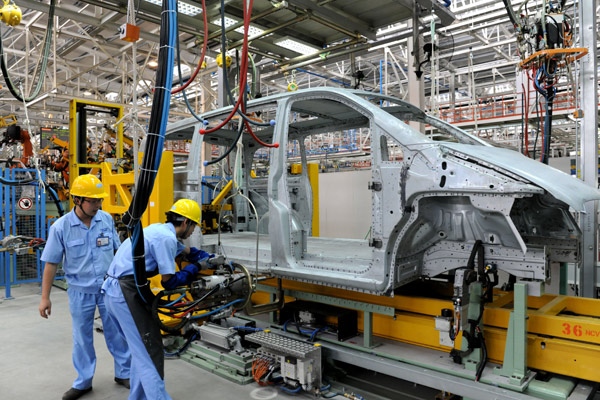What Alibaba Can Teach G20 Leaders — China Daily OpEd Commentary
It’s been 740 years since Hangzhou could rightly claim to be the most important city on earth. Back then, it was the capital of the world’s wealthiest and most developed nation, China during the Southern Song Dynasty. This week Hangzhou will briefly again be the center of the world’s attention and admiration, as the leaders of twenty of the world’s most developed countries arrive in the city to participate in the two-day G20 Summit.
The world’s spotlight will fall both on Hangzhou’s most famous historical landmark, West Lake, as well as its most famous local company, Alibaba, which also happens to be the world’s largest e-commerce company. Alibaba’s founder and chairman Jack Ma, is a Hangzhou native. He has spoken often of his pride that the G20 will be held in his hometown, boasting “Hangzhou has become the driving force of China’s new economy.” He suggests G20 visitors might want to rise one morning at 5am to walk about West Lake, to see Hangzhou scenery ancient and modern.
Alibaba has changed Hangzhou and changed China. But, to really grasp the full and positive extent of that change, world leaders would need to venture out from Hangzhou and visit some of China’s smallest, poorest and most remote rural villages. Here Alibaba’s impact is perhaps the most transformational. That’s because Alibaba has made a special effort to bring the benefits and convenience of online shopping to China’s rural families, the 45% of China’s population that still live on the land.
Since Alibaba listed its shares on the New York Stock Exchange in 2014, the company announced plans to spend RMB 10Â billion on rural e-commerce infrastructure, to make it possible for people in over 100,000 Chinese rural villages for the first time to buy and sell on Alibaba’s Taobao marketplace.
It’s impossible to overstate the importance of this effort. E-commerce now offers the fastest and most durable way to improve living standards among China’s traditional peasants. By getting online they can shop more widely and buy more cheaply a vast range of products never before available in village China. In addition, also for the first time, they can sell directly their farm products, both fresh and packaged, to tens of millions of customers living in cities across China.
I’m one of those urban dwellers in China who now does some of his food shopping from tiny rural family businesses on Taobao. In the last week I bought dried chili peppers from Sichuan, apple vinegar from Shanxi, goji berries from Qinghai and dried sweet potato chips from Shandong. Everything I buy from rural folks is great. But, for me and probably many others, the real enjoyment comes from knowing that, thanks to Alibaba, my money can go directly to the people working hard to build a better life for themselves and their families in rural China. This, in turn, helps narrow the income gap between rural and urban.
Unlike the two big US e-commerce companies, Amazon and eBay, Alibaba takes no commission on purchases made on Taobao. This is what economists call “frictionless trade”, where buyers and sellers can transact without any middlemen taking a cut. It’s a dream of farmers worldwide, to sell products directly to customers and so earn more for their hard work.
Online shopping in rural China is now growing far faster than in cities. And yet what’s most exciting, we’re still in the early days. In the future, farmers should be able to save significant money and improve harvests by buying seeds, fertilizer and tools on Taobao and other specialized online sales platforms.
To get there, Alibaba is paying for tens of thousands of “Village Taobao” centers across China. Here, farmers can get free help to buy and sell online. Nowhere else on the planet is e-commerce being as successfully introduced into the lives of small village farmers. The world should take note, and China should take pride.
This year marks the first time China has hosted a G20 summit. Looking at the agenda, the twenty world leaders will hold detailed discussion on trade, fostering innovation and eradicating poverty. Meantime, Alibaba is busy putting such talk into action. Its efforts to spread e-commerce in China’s countryside provide concrete proof of how tech innovation can be both inclusive and helpful to all of society.
By Peter Fuhrman
The author is chairman and CEO of China First Capital.
–
http://www.chinadaily.com.cn/opinion/2016-09/06/content_26709314.htm
–
–







